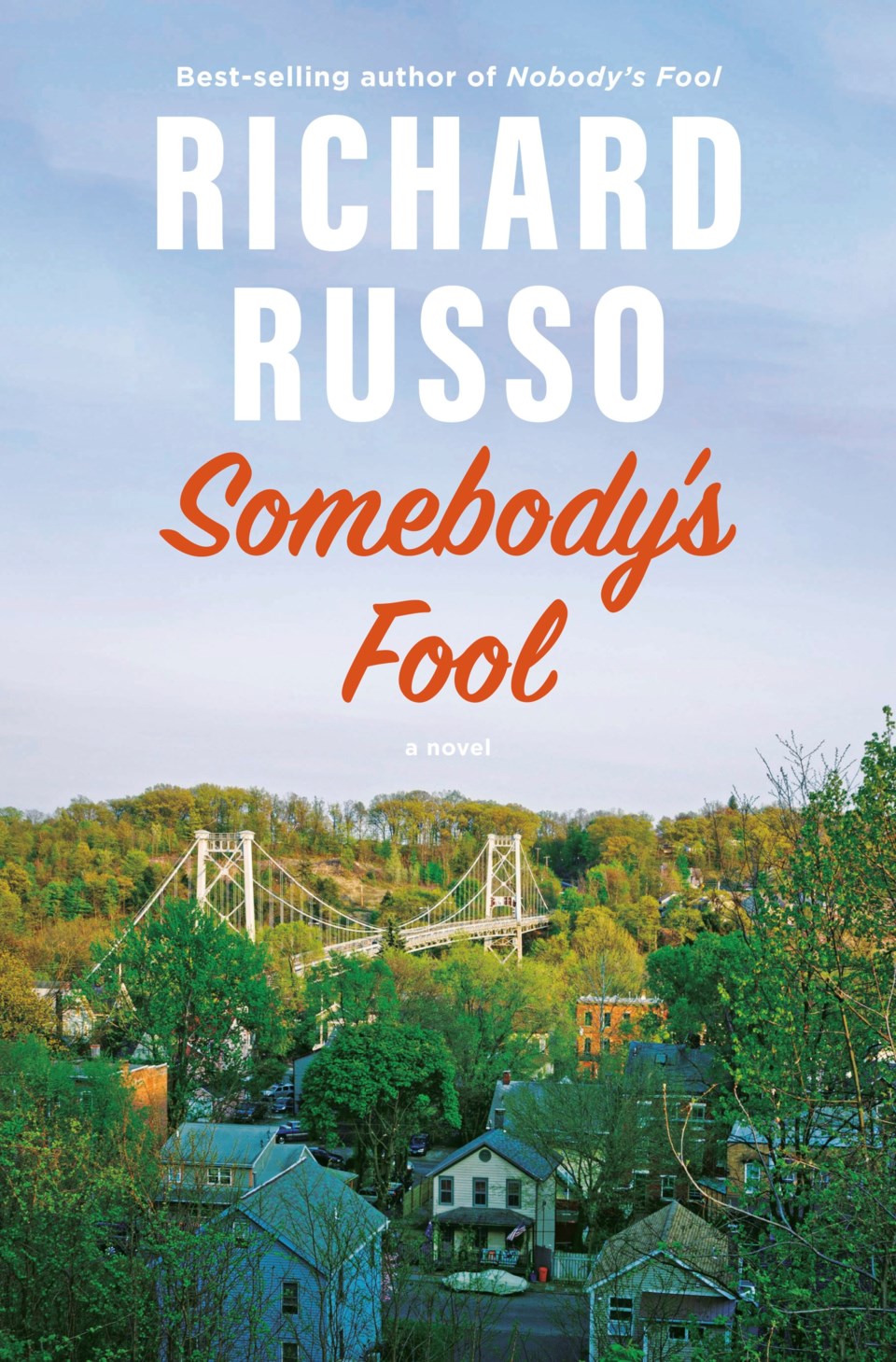“Somebody’s Fool” by Richard Russo (Alfred A. Knopf)
Richard Russo is back with the third book in his “Fool” series, and while it feels climactic, the author hasn’t formally said if it officially ends the trilogy he began in 1993 with “Nobody’s Fool” and revisited more than two decades later in “Everybody’s Fool” (2016).
“Somebody’s Fool” jumps ahead almost 15 years from the end of the second novel. There is an early reference to “the recession the whole damn country is in,” pegging the time frame to the late 2000s. The upstate town of North Bath, New York, has been annexed by its well-to-do neighbor, Schuyler Springs. We’re treated to an opening chapter that fast forwards through the lives of a few key characters and by page 19, the hero of books one and two, Donald “Sully” Sullivan, is dead. His son, Peter, finds him “sitting on the bench outside, studying the racing form. Or that’s what he’d apparently been doing when his heart quit.”
Luck, then, and why some people have it and others don’t, endures as a favorite Russo theme. Peter wears the hero’s cape in this novel, whose main events take place about a decade after Sully’s death. He has inherited both his father’s and mother’s houses and is fixing up the former in the hopes of selling it for a big profit and leaving town. Fate, of course, has other plans. When one of Peter’s estranged sons shows up in North Bath, Peter is forced to consider just how much his life is starting to mirror his father’s.
Fans of the previous two novels will enjoy reconnecting with familiar characters, from Ruth and her daughter Janay and granddaughter Tina, to Doug Raymer, no longer North Bath’s police chief (because, no more North Bath) and he-hopes-still-his-girlfriend Charice (now the police chief of Schuyler Springs). Add in Charice’s brother, Jerome, back in town after years away in North Carolina but with the same OCD affliction, and “hapless” Rub Squeers, just starting to get over the death of his wife, Bootsie, and still not over the loss of his best friend Sully, plus a dozen or so others, and you’ve got a sprawling cast, indeed.
But while Sully is missed as a physical presence in the book, he’s never far from anyone’s mind. “Dead wasn’t the same as gone,” writes Russo. In fact, a search of the PDF provided by the publisher yields 260 uses of the name Sully in the 458-page novel. Peter, of course, is always thinking about his father, and everyone else is always thinking about the similarities between Peter and his father, or their own memories of Sully.
The “Fool” books nail that small town vibe, where everybody thinks they know everybody’s else’s business, and more importantly, cares about what happens to their neighbors. If it all feels a little quaint in America circa 2023, that’s part of the charm. And it’s what sets in motion a chunk of the plot when an unidentified body is found hanging in the abandoned Sans Souci hotel. The mystery of the man’s identity threads throughout the book and when the case is finally solved, there’s a sense that the tragedy might have been avoidable if neighbors had just known more about the man’s circumstances and been able to help.
In Russo’s world, these characters certainly would have tried. Plenty of them get a measure of life or career satisfaction by the novel’s end, guided by one of Sully’s endearing rules: “Do something. If that doesn’t work, do something else.”
Rob Merrill, The Associated Press



